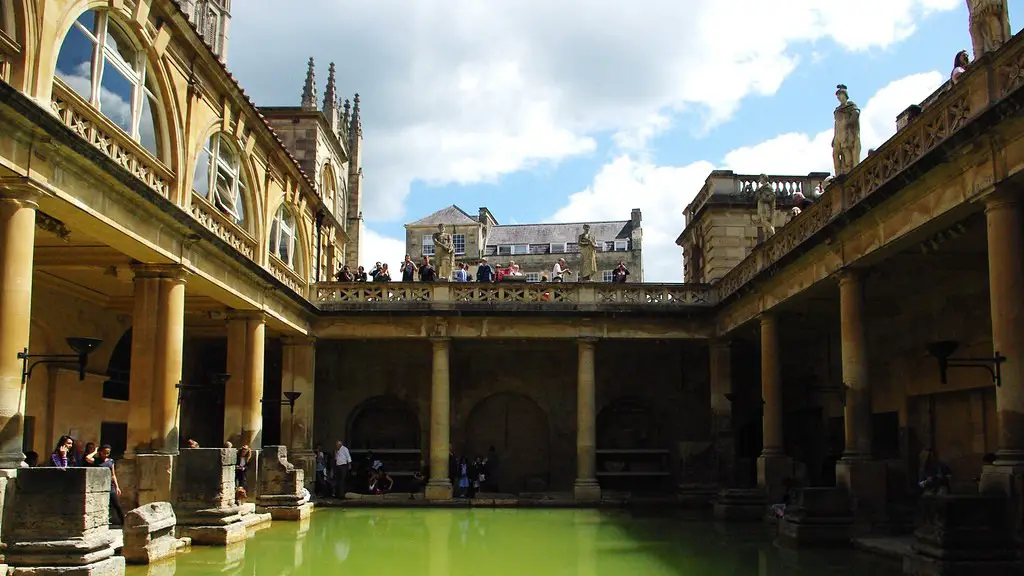The Latin language was the language of ancient Rome. It was originally spoken by the Latins, a tribe who settled in the central Italian region known as Latium. The Latins were a peaceful people who enjoyed trade and commerce with their neighbors. They were also skilled farmers and great warriors. In time, the Latin language became the dominant language of the Italian peninsula.
Latin
What languages were spoken in ancient Rome?
Latin was the language of the Roman Empire, but it was not the only language spoken in that vast territory. Other languages and dialects, such as Greek, Oscan and Etruscan, were also spoken by the people of the empire. These languages and dialects give us a unique perspective on the ancient world.
The Italian language is derived mainly from “vulgar” Latin, which was the spoken language among commoners and less educated citizens of ancient Rome. This makes Italian one of the most interesting and unique languages, as it has been influenced by both the high and low cultures of its history.
What did Romans speak before Latin
Oscan was a widely spoken Italic language before the spread of Latin. It was prominent in Bruttium, Lucania, Campania, Samnium, and other parts of central and southern Italy.
It’s safe to say that the Romans did not speak English since the language did not exist during their time. The Roman empire ended around the 5th century AD, so it’s likely that they spoke Latin or some other language common during that era.
Is Rome a dead language?
Latin is considered a dead language because it is no longer spoken by native speakers. However, it is still used in specific contexts, such as in academia or in religious settings.
Latin was originally spoken by small groups of people living along the lower Tiber River. As the Roman political power increased, Latin spread throughout Italy and then to most of western and southern Europe and the central and western Mediterranean coastal regions of Africa. Latin became the official language of the Roman Empire and remained so for many centuries. Even after the fall of the Roman Empire, Latin continued to be used by the Catholic Church and by scholars. Today, Latin is still used by the Catholic Church and is taught in some schools.
What language did Jesus speak?
Aramaic was the main language spoken by the historical Jesus and his disciples. It was a Galilean dialect of Aramaic, which was a widely-spoken language in the Middle East by the time of Jesus. Aramaic continued to be spoken by Christians in the region for centuries after the time of Jesus.
Sumerian is believed to be the first written language in the world, dating back to approximately 3500 BC. The earliest proof of this is the Kish tablet, which was found in today’s Iraq. Sumerian is a very complicated language, with many rules and exceptions. However, it is also a very beautiful and poetic language.
What ethnicity were Romans
The early Romans were mainly composed of Latin-speaking Italic people, known as the Latins. The Latins were a people with a marked Mediterranean character, related to other neighbouring Italic peoples, such as the Falisci.
The historical Jesus likely did not speak Latin. The lingua franca through much of the eastern Roman world was Greek, and he could have picked up a few words of that Mediterranean tongue from traders plying its caravan routes.
How did Latin turn into Italian?
Italian, like many other languages, originated from Latin. After the Roman Empire fell, Classical Latin continued to be used for most writings. A different version, Vulgar Latin, became more commonly spoken by the average person in parts of Italy and eventually led to Classical Italian.
As the Roman Empire fell, so too did the use of classical Latin. It was replaced by a simplified version of the language called Vulgar Latin, which then gradually morphed into the Romance languages: Spanish, French, Italian, Portuguese and Romanian. Thus, the Latin of the classical era is no longer spoken or used.
How did they say hello in ancient Rome
Hello,
If you would like to say hello in ancient Rome, you can say “Salvē” to one person, or “Salvēte” to a group of people. You can also use the word “Avē” as a general greeting. These words can be translated simply as “Hi”.
Frisian is one of the closest languages to English, sharing a common ancestry with the Angles, Saxons, and Jutes who settled England. spoken all along the southern coast of the North Sea, from Bruges in Belgium to the river Weser in Germany, Frisian was influential in the development of modern English. The Frisians also shared a similar culture and way of life with the English, and many Frisian words and customs were adopted by the English.
Did the Romans ever fight the English?
The Romans first invaded Britain in 43 AD, under the command of their general Aulus Plautius. They fought several Battles against British tribes, including the Battle of the Medway, the Battle of the Thames, and later the Battle of Anglesey. The Roman conquest of Britain was a long and gradual process, which was finally completed in the years following the death of Caratacus, the last British leader to resist Roman rule.
Did you know that there are over 3,000 languages spoken around the world? That’s a lot of different ways to communicate! However, many of these languages are in danger of dying out.
Here are 10 endangered languages you might not have known were at risk:
1. Irish Gaelic
You might be surprised to learn that Irish Gaelic is an endangered language. While it is still spoken by around 1.2 million people, that number is in decline. The language is mostly spoken in Ireland, but there are also speakers in the UK, Canada, and the US.
2. Krymchak
Krymchak is a language spoken by the Crimean people, a peninsula of Ukraine. It is a rare language, and it is estimated that there are only around 1,000 speakers remaining.
3. Saami
The Saami people are an indigenous people of Europe who inhabit the northern parts of Norway, Sweden, Finland, and Russia. Their language, also called Saami, is spoken by around 20,000 people and is classified as endangered.
4. Ts’ixa
Ts’ixa is a language spoken by the Okanagan people, an
Conclusion
The language spoken in ancient Rome was Latin.
The language spoken in ancient Rome was Latin. Latin is a classical language that was spoken throughout the Roman Empire. After the fall of the Roman Empire, Latin continued to be spoken by the educated elite in Europe. Today, Latin is still studied by scholars and is spoke





